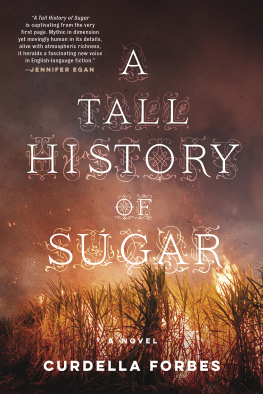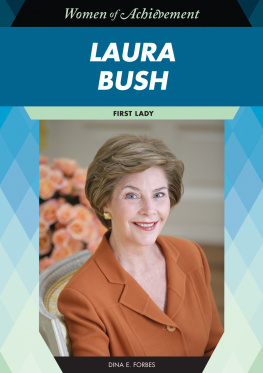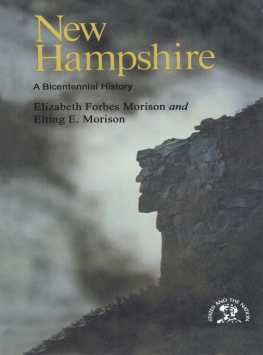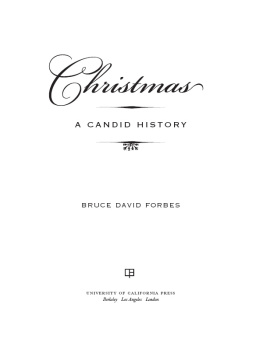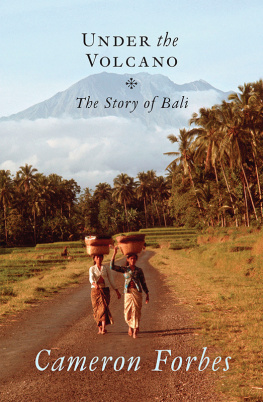Curdella Forbes - A Tall History of Sugar
Here you can read online Curdella Forbes - A Tall History of Sugar full text of the book (entire story) in english for free. Download pdf and epub, get meaning, cover and reviews about this ebook. year: 2019, publisher: Lightning Source Inc. (Tier 3), genre: Art. Description of the work, (preface) as well as reviews are available. Best literature library LitArk.com created for fans of good reading and offers a wide selection of genres:
Romance novel
Science fiction
Adventure
Detective
Science
History
Home and family
Prose
Art
Politics
Computer
Non-fiction
Religion
Business
Children
Humor
Choose a favorite category and find really read worthwhile books. Enjoy immersion in the world of imagination, feel the emotions of the characters or learn something new for yourself, make an fascinating discovery.
- Book:A Tall History of Sugar
- Author:
- Publisher:Lightning Source Inc. (Tier 3)
- Genre:
- Year:2019
- Rating:4 / 5
- Favourites:Add to favourites
- Your mark:
- 80
- 1
- 2
- 3
- 4
- 5
A Tall History of Sugar: summary, description and annotation
We offer to read an annotation, description, summary or preface (depends on what the author of the book "A Tall History of Sugar" wrote himself). If you haven't found the necessary information about the book — write in the comments, we will try to find it.
A Tall History of Sugar — read online for free the complete book (whole text) full work
Below is the text of the book, divided by pages. System saving the place of the last page read, allows you to conveniently read the book "A Tall History of Sugar" online for free, without having to search again every time where you left off. Put a bookmark, and you can go to the page where you finished reading at any time.
Font size:
Interval:
Bookmark:

In memory of my beloved niece Kettie (April 9, 1988April 5, 2018)
and for my youngest, Kash and Koyo

Chapter I
i
Long ago, when teachers were sent from Britain to teach in the grammar schools of the West Indian colonies (it was Great Britain then, not Little England, as it is now, after Brexit and the fall of empire), there lived in Jamaica, near a town called Oracabessa-on-Sea, a poor fisherman and his wife, who was a farmer and a seamstress, and one morning they found a pale child in bushes in a basket made of reeds. The man's name was Noah Fisher, and his wife's name was Rachel.
They adopted the child and named him Moshe, which is to say, Moses, which in translation means "drawn out," and they named him in this way because Rachel was a Yahwehist, and because the bushes in which they found him were a tangle of sea grapes running low as a reed bed along the ground on cliffs above the sea, and when she found him (for it was she who first saw the child) the spray from below had made a pool around the basket so that in another few moments it would have sailed. Which is to say that in a manner of speaking, the little boy was indeed drawn out of water.
The grandmother, a longheaded woman of the countryside, tells me, "Yu nuh need fi go deh so," you do not need this long explanation of watery origins, since the ancestors of every Jamaican came over the sea, most of them in the ship's cakka, and moreover are we not an island, surrounded by water? So anyone born and found here is a child of water, and no more to be said.
But this child that was found did not look like anyone who came over in the holds of ships three hundred years ago, so it is important to give all the details of his name and how he was found.
The morning on which this happened was not unusual in the pattern of Noah's and Rachel's lives. It was a Friday, the day when they joined the long lines of sick and ailing from the town and its surrounding districts, who traveled to the parish's one hospital, mostly on foot, to get treatment for their ailments and wounds. The lines included women pregnant with their first, second, third, sometimes tenth, eleventh, or even twelfth child. It included men with machete chops all over their bodies from plantation disputes, children bent in the shape of safety pins from hookworm, young ones with yaws, whooping cough, measles, or mumpsthe usual maladies of childhood in those times and in that placeand many young and old suffering from heart failure, blocked tube, hernia, unresponsive male organ, underresponsive female organ, testicular edema, old fresh cold, virulent fresh cold, consumption, out-of-control blood pressure, and various disorders from the surfeit or indigestion of sugar.
The extent and variety of ailments from saccharine indigestion on the island were both miraculous and unsurprising. In case this is unknown to you, Jamaica from its infancy had been a sugarcane plantation, where people perforce ate a lot of sugar or its byproducts and leftovers. Sugar in the boiling houses made the slaves drunk, the great vats of it with its liquorish smell when it was in the making, and when it was made, the shining crystals scooped into vast kegs for shipping to England, the mother country. The grains clung to their skins and got into their eyes and ears and even their secret partstheir vulvae and their scrotumsand that was the reason some could not have children, the grandmother said.
After the long cruel hours in the canepiece, being bitten by cane rat, sugar snake, overseer whip, hot sun, and cane leaf, when they went back to their slave cabins at night there was sometimes nothing to eat but sugar, but they could not eat it without becoming sick, or rather, more sick, since they were already sick in the beginning from too much consanguinity with its sweet stickiness. This is why it became a saying in Jamaica, Is one of two tings going tek yuif is not sugar, is heart failure. (Which might boil down to the same thing, for heart failure comes from eating too much saltsalt for healing, for taste, even in your tea, salt for feeling balanced, salt for good luck, throw it behind you, salt for counteracting obeah and the ill effects of sugar. In Jamaica once upon a time and maybe still now, we ate salt like sugar. Against sugar. So it still goes back to King Sugar.)
Noah Fisher, a quiet man except when he was aggrieved, had his own views as to how this alchemy of sickness took root. "Foolish Galatians. Oonu don't know seh sugar be di one ting black people cyaan eat wid hinpunity," sugar is the one thing that black people cannot eat without a confrontation with destiny.
He would say this rudely in the clinic, from anger that he could not (it seemed) be rid of this history that was lodged in his flesh, and because he wanted to infuriate the nurses. These women, whom he hated for their demeanor of superiority, were among the few humans who could make Noah wax almost loquacious. In the clinic he cursed like a warner, telling strings of proverbs, but profanelynot in the holy-holy language that warners used. "Ole idiot tink dem better than people, just because dem carry out shitpan fi pay while poor people carry it out fi free. Monkey rise high, expose him raw backside. Ole ooman swear fi nyam callaloo, callaloo swear fi wuk him effing gut." A climbing monkey exposes the secrets of his behind. You have ingested your own destruction and thought it a gift. And how could it be otherwise? Can a person eat his own flesh? Not with impunity, not scots-free. You will see this in the annals of the sugar plantations, how it was that the bright brown crystals came about, how bone and blood got mixed in the mtissage, tips of fingers, sometimes knuckles, and even whole arms bitten off by the great machines. The crystals at first wine-dark in blood, then soakaway to brown when the crushers smoothed them out.
This was not a history that Noah knew in its fine details, but his spirit apprehended it, and so his signature phrase of contempt, "Foolish Galatians, fool nuh jackass arse," was loaded with salient meaning. Their imaginations steeped in the hattaclaptic language of the King James version, even the illiterate people of those days understood that to be a Galatian was to suffer a lack of historical memory.
Noah was among the patients sick by sugar. He had on the inside of his right thigh a long-running diabetic sore that had to be hospital-dressed every Friday morning, though after many years of dressing it still had not healed. Rachel accompanied him on these trips to the hospital because he could not read or write, but she could, and sometimes there were papers that he was required to read and sign.
Some people depended on the hospital clerk to write on their behalf, Donovan Bright, his mark, or, Mattie Longbridge, her mark, or whatever their names were, their mark, and the hospital clerk would show them where to make an X on the line above this declaration. But some felt ashamed, even though many of them were in this category, illiterates who depended on others to write for them, and so, when they could, they brought their reading and writing relatives along, so that they would not have to depend on strangers to sign their names in good cursive on the correct line.
When the waiting lines were long and Rachel knew it would take some time for Noah to be attended to, or when he was misbehaving in the clinic, she went outside, around to the back of the building, to catch a breath of air. This particular morning she needed air more than ever, because she and Noah had quarreled, which meant it was one of those mornings when she hated him with a hatred that made her feel she was suffocating. Their quarrels were frequent, and grew more and more bitter as they discovered they could not have children, and Rachel felt in her heart that Noah did not renounce or protect her from the district's belief that if there was no child, it was the wife who was barren. Noah's rage, meeting her accusation, was simple: "Woman, yu tink me is God? If yu womb shet up, I can mek pickney out of the dust of the ground? Awright, mek one an call him Adam!"
Next pageFont size:
Interval:
Bookmark:
Similar books «A Tall History of Sugar»
Look at similar books to A Tall History of Sugar. We have selected literature similar in name and meaning in the hope of providing readers with more options to find new, interesting, not yet read works.
Discussion, reviews of the book A Tall History of Sugar and just readers' own opinions. Leave your comments, write what you think about the work, its meaning or the main characters. Specify what exactly you liked and what you didn't like, and why you think so.

